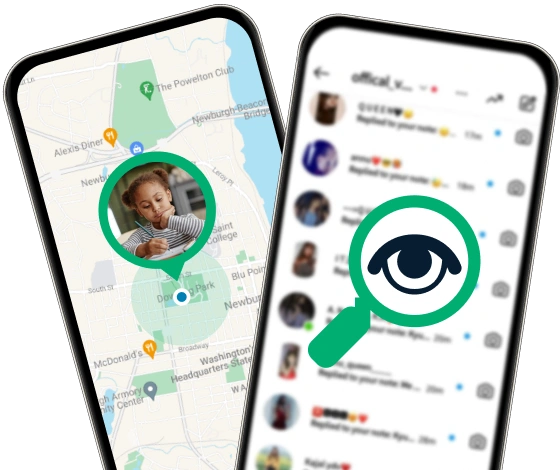Kids are happy when they grow up in a friendly home atmosphere and obtain good support and love from their parents. Happy and mentally independent individuals are formed with good behavior examples that can only be obtained from their parents. Unfortunately, not all kids get it. The reasons may differ: problems at home, at work, or in marital relationships, as well as a lack of finances, are some of the most common. Whatever the reason is, the person who always suffers is a kid.
As a rule, kids feel even the smallest problems in a family with the most vital power. When they feel constant pressure from the side of their parents, they may feel themselves as priceless, miserable, and unconfident, which, in turn, may lead to more severe problems in the future, such as a lack of motivation, self-esteem, and power that drives us to become better and gain success in things we do.
So, what should you do as a parent if you have noticed that you constantly shout and criticize your kid? What if you have become one of those toxic parents, and what are the signs of toxic parents you should know about? Well, we are here to help you.
What Are Toxic Parents?
“Toxic parent” is not a medical term describing a mental disorder. It is not a clearly defined concept as well. So, what are toxic parents? In short, the term toxic parent covers the negative behaviors of parents that negatively impact their kid’s sense of self-esteem, self-love, and confidence.
What is one of the main signs of toxic parents? According to the classification by the Clevland Clinic, a toxic parent cares about themselves first of all, and the child is in second place. Instead of being a shoulder to cry on or a person to share all secrets with, toxic parents’ behavior can be described as one that is physically, emotionally, or sexually abusive.
A toxic mother or father can be very demanding, cruel, harsh, controlling, and criticizing, putting their children at high risk for long-term mental and physical health issues that persist into adulthood. Their actions can be described as negatively shaping their kid’s life.
Types of Toxic Parents

Well, once you know the answer to “What is a toxic parent?” you might be interested in the types of toxic parenting. Good for you: The section below will give you the answer, and, who knows, you may find yourself in one of them.
- Dismissive: Being dismissive is one of those signs of toxic parents. A parent underestimates or completely ignores their kid’s feelings and emotions. They do not worry about their needs and are not interested in their wishes or possible worries. They create an environment in which their child feels underestimated and worthless.
- Narcissistic: As a rule, kids of narcissistic parents grow into adults who lack empathy, struggle with intimacy, and find it difficult to come out of their shells socially.
- Overbearing: A helicopter-type toxic parent is overly involved in their child’s life and always tries to control and interfere with every aspect of their child’s development. They make decisions for the child, preventing them from experiencing natural consequences and learning from mistakes. This behavior can lead to the child feeling anxious and incapable of handling life’s challenges independently.
- Passive or permissive: Passive, also called permissive, parents avoid conflict and don’t set rules or expectations for their children. They rarely set boundaries or discipline their kids. As a result, children raised by permissive parents may have chaotic lives and struggle with authority.
15 Signs of a Toxic Parent

Despite the many signs of a toxic parent, we’ll describe the most frequent ones in the section below. Look out for these signs of toxic parenting to determine if you have toxic parents:
- Verbal Abuse
It is one of the cornerstones of signs of a toxic parent. If you remember your toxic parent yelling at you, blaming you for what you did wrong, etc., you are a victim of verbal abuse. It might seem not so important as no physical harm is done, but emotional damage is still damage.
- Physical Abuse
One of the most terrible things is when a toxic parent raises his hand on a child. Parents may see it as an “education method”, but violence is never a good solution. Unfortunately, it has been used in our educational system for decades, and it is hard to get rid of now.
- Manipulations
“You make me sad with your actions”, “John knows how to behave, unlike you”. Does it sound familiar? If yes, you should know that manipulative behavior is one of the main signs of a toxic parent. People use manipulations when they have no other way to influence a person.
- Strictness
Toxic parents often hide behind strictness. It is their way of compensating for their lack of knowledge of what to do with their kids. Modern culture usually demonstrates strictness as a strength and a must-have quality, but such an attitude is questionable.
- No Affirmation
It is normal for parents to admire their children and treat them for their achievements. If a child does not receive affirmation, it is the first sign of toxic parent-child relationships. Even worse, such attitudes will be transferred to their children in the future, and generations of sad and unconfident people will grow.
- Approval Love
Love should be unconditional. If you hear from your toxic parent that they would love you if… IF! There should be no if for love – remember this. People must love their kids just because they are kids and they are theirs!
- Criticizing
Toxic parents never admit their mistakes and always blame and criticize others. A responsible and kind parent is always ready to admit if they have done something wrong. One of the toxic traits, on the other hand, is blaming and not supporting their child. It is always easy to criticize, and some parents just follow the simple way.
- Humiliation
Gaslighting and humiliation are the other signs of toxic parents. They are the weapons for the weak. Unfortunately, many parents hide their own problems and fears behind them. Children do not have many ways to respond to such attitudes and become simple victims of the adult’s attempts to build their self-esteem.
- Narcissism
Toxic parents are often noticed to be narcissistic. In some really severe cases, it may even turn into a personality disorder, which leads to 0 empathy towards others. As our children are the closest people to us, they become the first victims of narcissistic behaviors, and as they have no idea what it is, they cannot cope with it.
- Always Right
Teenagers who grow up in a toxic environment claim that it is impossible to prove to their parents that they are wrong, although they have no reasons to think so. Their main bait is: “I am your parent, how can I be wrong?” Do you smell toxicity here?
- Intrusive
Toxic parents do not respect their children’s right to privacy. It is okay for them to rush into their child’s room to check what they do or explain what they should do. It especially affects teenagers who have only started having their personal lives and need some private space.
- Reading Minds
Unfortunately, toxic people often forget that others do not read their minds. They get irritated when others do not do what they need without instruction and may argue with others for no reason at first glance. In fact, all their aggression comes from their ignorance and focus on themselves.
- No Friends
Bad relationships with parents often start developing because they do not want their children to have friends and general contact with the outside world. They see society as a dangerous place where their little ones can only learn bad habits.
- No Interest
Toxic parents are sure that their kids are interested in stupid things and that their hobbies do not deserve any attention, whether it is music, dancing, or computer games. They think they help their children switch to the good things, such as studies, science, and work, but such an attitude is toxic.
- Easily Offended
Pretending they are offended, toxic parents protect their position and views. In such a way, they also try to make their child guilty of “offending” them and turn the situation upside down. In fact, such behavior is another type of manipulation.
What If Your Partner Has Signs of Toxic Co-Parent?
It is a mistake to think that parenting becomes toxic only when both parents have the same negative attitude. Even if it is only a toxic mother or father, it already influences not only the child but the atmosphere in the whole family. And if children cannot do anything about this, another, not toxic parent, can actually try to change things.
According to Resting Tree Counselling, overly harsh discipline, substance abuse, and excessive involvement in each other’s lives, which leads to a lack of healthy boundaries and independence, result in various issues. These include decreased social well-being, poorer academic performance, and increased mental health problems in children. Additionally, these toxic behaviors can create a stressful home environment, causing long-term emotional and psychological challenges for all family members.
Here are a couple of tips to follow if one of the above-mentioned signs of toxic parents is what describes you:
- Prioritize your child’s mental health as they are not emotionally stable at this age, as dealing with a toxic mother or father can influence their future development and adult life
- Reach some support and do not hesitate to ask for help – whether your own parents, friends, or an online support group
- Be consistent with everything you do and the support you provide. It is better not to suddenly change your attitude or behavior, as this can scare the child and break their trust.
How Toxic Parent Traits Influence Your Child’s Future?
Toxic parents never think about how such an atmosphere and relationships in the family influence the future lives of their children. And it influences drastically! Here are some toxic parent traits and problems children who grew up in poisonous families meet frequently.
| Problems with self-authentification | People who spent their childhood with toxic parents often struggle to differentiate themselves from their families. They still live in the matrix of toxic relationships and do not even understand that they can live apart from it and develop as individual personalities. They are still those little guys and galls whose actions and emotions are dictated by manipulative mother and father. |
| Cannot say no | Dealing with toxic parents often involves a breach of personal borders. When such people grow up, they are unfamiliar with this notion and do not know how to protect their point of view or refuse to do something they do not want to. Overcontrol is unhealthy. So, if you notice it among your toxic parent traits, get rid of it immediately. |
| Fear of intimacy | Those who went through abusive relationships are often afraid to become close with other people. It leads to depression and problems in their own families, and as a result, they also become toxic parents for their children. So, if you do not wish it on your kid, eradicate this behavior from your toxic parent traits. |
| Anxiety disorders | People who grew up with toxic parents are proven to have anxiety disorders more often than those who grew up in normal families. |
Thus, creating a loving and caring environment for your children is essential if you want them to become happy and responsible members of society when they grow up.
Tips for Monitoring Your Kid Without Being a Toxic Parent
Have you noticed any of the above-listed signs of toxic parenting in your behavior and attitude towards your kid? If the answer is “yes”, do not think you are a bad parent. You might be pushing your child hard because you care deeply about their future and security and want them to become strong and independent.
Parenting is challenging; even the best parents can sometimes lose their patience or become overly strict. Remember, despite these moments, your main goal as a parent is to protect and support your child. But how do you constantly watch them and not break your relationships? Here are some tips to make things work right and still monitor your child.
Talk to Your Child Regularly
You must explain to your child why monitoring them is so important for you as a parent and why you are being so overly protective. Tell them about online safety rules – what content they can share online and what should be kept private. Help them understand the potential consequences of being too permissive or lacking control and why these measures are in place to protect them from potential dangers. This understanding will help your child see that your intentions come from a place of care and concern for their well-being.
uMobix Parental Control App for Remote Oversight
Parental control applications are a real life-savior in this situation. Toxic parents choose gaslighting and abuse; smart and loving parents go for phone trackers, such as uMobix. You can install this parental monitoring app on your child’s device and be informed about all their phone and online activity in real time. It is possible to view their text messages, calls, location, browser history, social media, photos, videos, and more. For Android, screenshot reporting of all activities is set at 10-second intervals, while for iOS, updates depend on backup frequency.
The most important thing is that you will stay anonymous throughout the whole monitoring period (which makes uMobix the best parental control app), and your kid will have no reason to call you toxic parents who do not respect their personal space. You will see all their messages and conversations, but please do not spy for spying’s sake. Only track your kids for their safety, and respect their personal space.
Well, how to get started with uMobix?
- Visit the uMobix website, click “Try Now”, and sign up using your valid email address.
- Choose the OS of your kid’s phone and purchase a preferred subscription plan.
- Check the email for a step-by-step installation guide.
- Take your kid’s phone and install the app on it.
- Log into your uMobix account on your device.
- Start tracking their online activities via a remote online dashboard accessible from any device or browser.

With uMobix, you can be certain your kid is safe and sound. And, what is more important, you won’t be a toxic parent as they won’t know you are tracking all their online activities.
Befriend Them on Social Networks
Start by sending your children a friend request on Facebook, Instagram, and other social networks. However, don’t pressure them into accepting; they must choose to add you on their own. This approach helps build trust and respect for their autonomy. Be kind and patient.
Many adults struggle with the effects of toxic parenting because they don’t feel comfortable sharing their feelings and emotions with their parents. Therefore, encouraging open communication and respecting your child’s decisions can help prevent these issues and build a healthier, more supportive relationship.
Talk to Your Child Regularly
We all need support, even as adults. We need a person we can trust and tell everything without fear we will be criticized or judged for our misdemeanors. So, just imagine how important and necessary it is for your child. A relationship of trust – that is what should be your #1 priority.
Use Search Engines
Try googling your kid’s name. Sometimes, it may reveal interesting information or show you some of their posts on forums and social networks.
Use Location Tracking
Many free location tracking services can help you track your child’s real-time location without them calling. For example, Find My Device for Android, Find My for iOS, or an old and classic way offered by Google Maps that works for both operating systems. These tools are built into any cell phone, so you can start using them immediately. Just remember to follow each app’s setup instructions to ensure they work properly.
Final Thoughts on Toxic Parents
It is essential to know all the traits of a toxic parent to know what to avoid in your own family. Unfortunately, previous generations of parents were unaware of such things; they were more focused on survival (lol), but the times are different now, and you can focus on psychological health in your own family.
So, consider your parents’ faults and not follow the same ones when being a parent. By doing so, you won’t become a toxic parent. Be a better part of yourself. Appreciate your kid’s feelings and always prioritize open communication to build friendly and trustful relationships with them, you can read about gentle parenting here.
To ensure their online safety, you need to understand where they are and what they are interested in using a tool like uMobix. This parental control app works discreetly, so your child won’t know you are monitoring them. It provides detailed information about their online activities, helping you stay informed and protect your children without bothering them.

Latest posts
- 10 Best Apps for Parents to Monitor Social Media: 2026 Guide
- Complete List of Keywords to Block for Parental Control
- Does Telegram Notify Screenshots? Everything About Screenshot Detection
- How to Find Someone’s Deleted Instagram Posts: Complete Guide
- Family Tracking App by uMobix: Keep Loved Ones Safe




